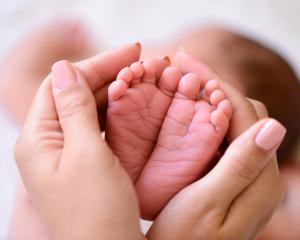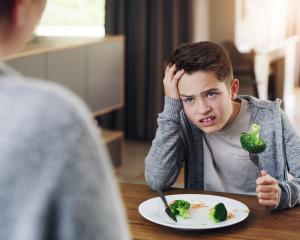
There're probably occasions when you just feel like grabbing Mr Mouthy by the scruff of the neck and yelling in his face. And after we've somehow managed to get through a confrontation without actually doing this, we probably either feel like we're failing as a parent or end up in an argument with our other half over how badly we handled it.
Angry parents pushed to the limits of their coping skills seem to feature in news stories with increasing regularity. And, broadly speaking, people seem to be getting angrier and angrier - not a good thing for personal health or for society in general.
There seems to be less and less time in our lives for a bit of peace and quiet. So, when Miss Smarty rolls her eyes once too often, she gets dumped on because we're tired, or stressed or running late.
Anger is usually a secondary emotion triggered by other primary emotions such as stress, tiredness, frustration or fear, or a sense of inadequacy, of being put upon, of not being respected and so on. We all end up there at one time or other.
Here are some suggestions from Mike Fisher, of the British Association of Anger Management. He's seen first-hand the effect of anger on children and their parents.
•Try to cue your child in when you're feeling angry. Communicate your vulnerabilities to them, let them know what's going on with you. That's "clean anger", and it's much easier to understand.
•If you do get angry, apologise. So many parents don't, yet they expect their own children to. Try to let them know what happened and why.
•Listen to your children - you don't always know better. Perhaps they do have a point. Perhaps they don't need to do what you want, immediately.
•Use an anger journal - it's a way of letting the anger have a space so you don't have to carry it all the time.
•Get support. Reach out to your friends, other parents, people who can help. Don't try to do it on your own. Isolation can make things worse.
This isn't to say that there isn't a place for anger. It's often anger that motivates people to make significant social or political change.
Our kids also need to understand that making someone angry can be a consequence of ill-thought-through actions. That's what happens in the real world and they mustn't be totally shielded from such response but have opportunity to understand and learn how to deal with anger when they've upset somebody.
- Ian Munro












